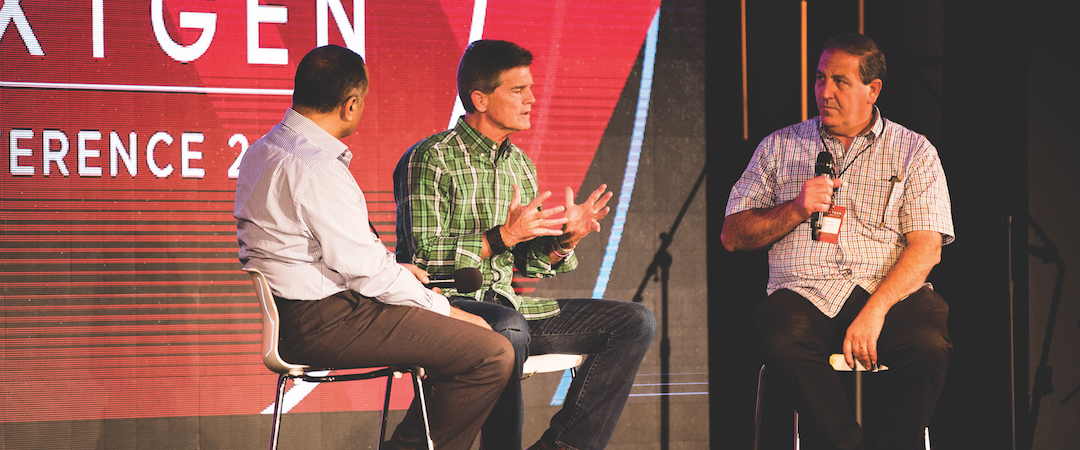 July 2019
July 2019

Top Three Requests
That God would give wisdom, clear direction, and financial provision for significant expansion in China while the window remains open.
That God will move parents and grandparents across America to engage their children systematically and intentionally with His Word and answers to today’s challenging questions.
That God will use the launch of the new Why I Believe small group Bible study to help parents and equip college and high school students to live and share the truth in winsome ways in a hostile culture.
Top Three Praises
For all of the partners who came together to create and fulfill this incredible Match (Ephesians 3:20).
For launching the French translation of True Spirituality (Romans 12) book and small group videos being distributed in France and North Africa, and for the 900 “Romans 12 Christian” parents committed to this. (And praise for 4 days of fun in Paris with Theresa!)
For new insights, relationship, and networks as Chip attended the 140 country Lausanne Global Workplace Forum in Manila, Philippines.

Bonus Message
Download MP3Why Are We Losing Our Children to the Culture?
You have heard me share my concern for the next generation, America, and the church. But we are far from hopeless! Our God is a mighty God. As Christians, we have the One true reason for hope, and we are called to reflect Him to this world.
As we prepare to release our new Why I Believe small group Bible study next month, I want to share an interview we did with student-ministry leader and apologist, Dr. Sean McDowell, professor at Biola University. He covers a lot of great questions, and you will find the full audio included in this month’s Coffee Break update, but I also wanted to share one of Sean’s responses here.
I hope this will inspire you to take time to listen to the interview, sit down with your kids and grandkids, maybe with the Why I Believe study, to have some conversations around these challenging issues facing younger generations.
How do we help our children own their own faith with the pressures of today and how are those pressures different from other generations?
I think it’s different in a few ways. The first way it’s different is there’s deeper hurt and loneliness in this generation than in previous generations. I mean, just in the past few months, we’ve seen skyrocketed studies about loneliness, studies about depression, attempted suicide. There’s always been difficult relational periods for young people since we’ve had young people. But there’s something skyrocketed within this Generation Z emotional hurt. And if they’re not experiencing it in their family, and they’re not experiencing it in the church, they’re going to take off and try to find something that fills up that emotional void.
The second way that it’s really different is arguably the internet. This generation now, because of cell phones, has challenges just one click away that many previous generations would experience in the university or beyond. So the accessibility of information often creates a sense of skepticism, unknowability, doubt, questions in ways that other generations just simply didn’t have to confront directly, immediately in front of them. Because studies have shown that kids are engaged with social media and on the internet and screen time somewhere, depending on how you study, between seven and eleven hours a day. That’s how they see the world. Screen time has made things radically different.
The last way I’d say it is different is when my father (Josh McDowell) was speaking in, say, the 70s and 80s on college campuses, what would happen is people would challenge him and say, “That’s not true. Give me proof. Show me the facts.” Broadly speaking, the Christian culture was at least supportive of a Christian worldview. Now with this generation, if you say you’re Christian, and you really take it seriously, in particular, on moral and sexual issues, you’re bigoted, you’re intolerant, and you’re hateful. In fact, there’s one activist has called it “talibanic.”
So this generation is growing up with a stronger awareness that there’s a little bit more of a cost or potential cost of following Jesus than previous generations. So we’re losing that middle ground that says, “I’ll just follow Jesus and it doesn’t mean anything.” That’s so much wasn’t the case in the past. By the way, we’ve heard about these nones, N-O-NE-S, people who said they’re Christians and leaving. I think a lot of them are just people who nominally are identified as Christians, not really those who fully bought in the first place. So there are significant differences from generations that would leave the faith in America in the 60s, 70s, and 80s.

So What’s a Parent or Grandparent to Do?
From the research on this topic and over 35 years as a pastor, I can share 3 characteristics of children who don’t leave the faith:
- Children who see the reality and centrality of Jesus in the lifestyle, priorities, and values of their parents are far more likely to embrace their parents’ faith.
- Children who begin reading the Bible and talking with God daily about their real life issues as a “relationship to cultivate” not a “religious exercise to perform” are most likely to remain in the faith.
- Children who actively and regularly serve in the church and with parents in the community rather than simply attending small group and youth group are far more likely to remain in the faith.
I hope this will inspire you to listen to the full interview included in this Coffee Break, and then pray and strategize about how you can begin to build bridges with the next generation to help them see a good, holy, and loving God who wants to know them.
Pray about what conversations you need to have with your children and grandchildren and seek out opportunities to create conversations that open doors to honest discussions around these questions.
Finally, pray that God will use our new small group Bible study, Why I Believe, to equip parents and grandparents to dramatically turn the tide in Christian homes across America.
Let’s keep pressing ahead TOGETHER!

CEO & Teaching Pastor, Living on the Edge



